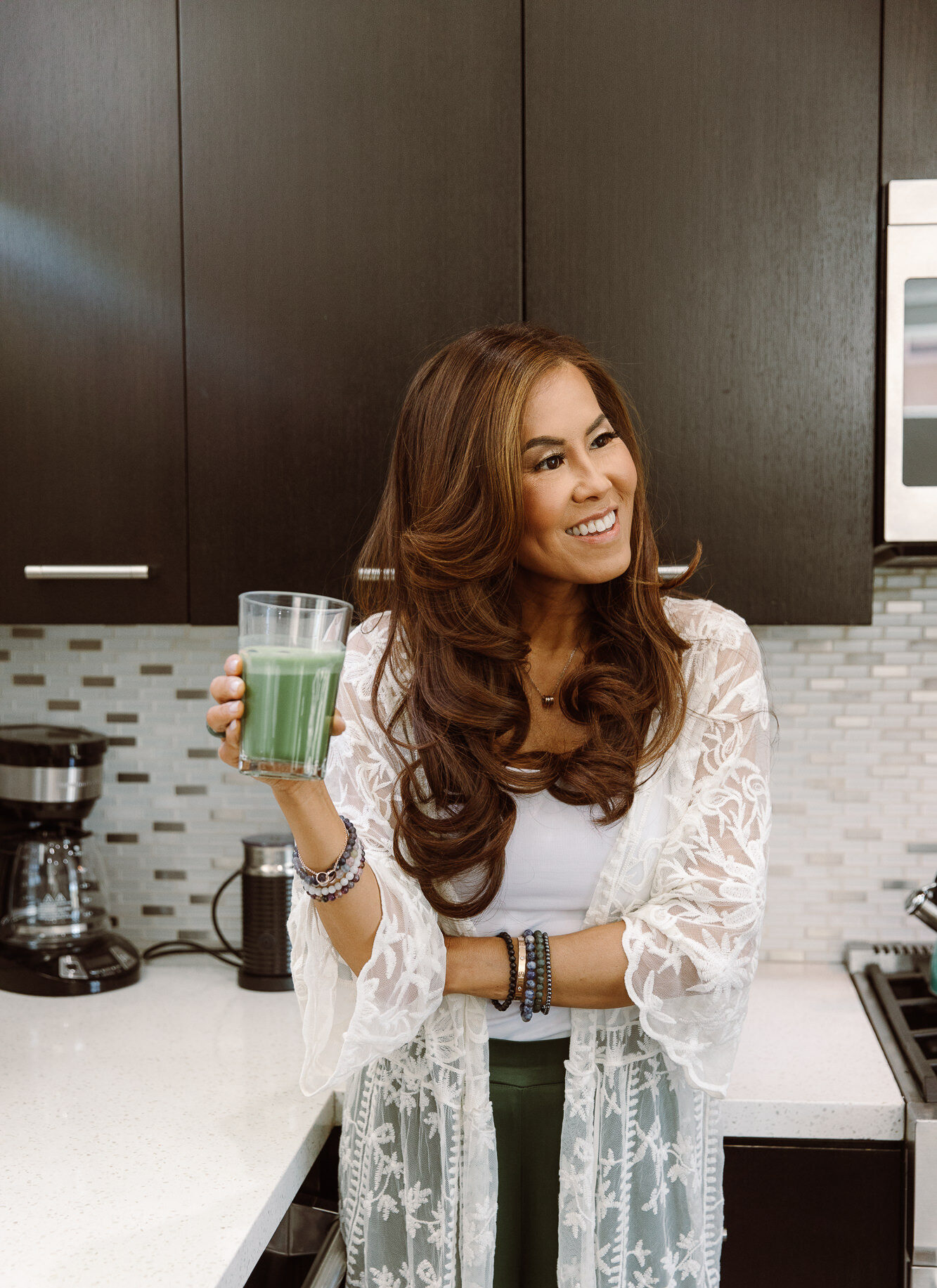Read the full article here.
The road to plant-based success begins with learning how to create a well-rounded meal plan — we’ve got your first week mapped out so you can dive in with confidence
It’s easy to say you’re going vegetarian or vegan, but taking action is a bit less straightforward for most people transitioning to this lifestyle. For instance, do you know how to create a well-rounded, plant-based meal? How will you ensure you won’t miss out on important nutrients now that you’re eliminating animal products from your diet? And how will you avoid getting stuck in a rut of eating the same foods over and over again?
“I see people who are not prepared, so they don’t eat balanced diets, end up feeling unwell, and then just give up, ” says plant-powered dietitian Sharon Palmer, MSFS, RDN. “You must be prepared and learn how to eat a balanced diet, so you feel vibrant and satisfied.”
The following planning tips will help you avoid the 10 common mistakes that could make your shift to a plant-based diet harder while ensuring all your nutritional bases are covered:
Consider These Tips
1. Set a time period goal. There’s no reason to commit to a change that will last your entire life right away, so start small with your timeframes. “For instance, you can try going plant-based for three weeks and see how you feel,” says celebrity chef, nutritionist and reiki master Serena Poon, CN, CHC, CHN. “Keep a food diary to remind yourself of how things are changing. Likely you’ll notice a shift in energy and mood in as few as three days. If you are shooting for an achievable goal and tracking your results, you will be more likely to stick with it.”
2. Meal plan and prep. Outlining your meals for the week can help set you up for success, especially at first. Meal prepping is even better. “If you are hungry and don’t have your plant-based options ready for you, you may reach for some of your prior habitual foods,” warns Poon. “Meal planning allows you to eat nourishing meals without having to think about it too much during a busy week.”
3. Stock your pantry and fridge. Another important aspect to staying on track is keeping the right foods onhand. “You must stock your pantry well with the essentials so you can create healthy meals at all times,” says Palmer. “Many of the essentials are shelf-stable and budget-friendly, such as whole grains, nuts, seeds, and beans. Then add fresh vegetables and fruits, tofu, and plant milks to round it out.
4. Don’t count calories. Let’s not make things harder than they need to be. “You want to prep your mind for the abundance of nutrients and nourishment coming from your new diet,” says Poon. “You’re not trying to restrict things further.”
5. Keep a cheat sheet of plant-based protein options. Print out a sheet of plant-based protein options and keep them in your kitchen. This way you won’t have to guess at whether or not you’re feeding yourself ample nutrients.
6. Identify your go-to options. It can be helpful to have a handful of plant-based recipes that you know you love. Poon suggests comfort foods like a grain bowl with green goddess dressing, avocado toast, or the burrito bowl at your favorite lunch spot. That way you don’t always have to stress about creating something new.
7. Go slowly. You might not be able to wrap your head around going fully plant-based all at once and that’s okay. “Maybe start with going plant-based for three days a week and expanding from there,” says Poon. “You’ll likely begin to feel so good when you eat plants that you don’t want to go back to your old ways of eating.”
8. Be patient with yourself. Set goals and strive to achieve them, but if you slip and eat one of your old foods, try not to get mad at yourself or feel guilty. Pick up your plant-based habits at your next meal and keep moving forward.
9. Lean on prepared foods if needed. It’s OK if you need to lean on “easy” plant-based foods — such as processed meat alternatives or packaged snacks — early in your journey. Just don’t let yourself become overly reliant on them for the long-term. “People often eat a lot of junk vegan food, but that means you are replacing the nutrients you need with low-nutrient foods, so you aren’t gaining the benefits of eating plantbased,” cautions Palmer. “The diet isn’t just about avoiding meat, it’s about eating healthy, whole plant foods.”
10. Don’t just eat veggies for your meals. A meal comprised solely of veggies will leave your nutrition falling short. “Each plate of food should balance all food groups,” says Palmer, “including proteins, veggies, fruits, grains, and healthy fats.”
11. Find your tribe. Community is everything, especially when you’re making lifestyle changes. Find a community of other plant-based eaters who you can turn to for inspiration, support, questions and recipes.
12. Listen to how you feel. “No matter what you are doing, listen to your body as you go,” says Poon. “If a food doesn’t sit well with you, that’s okay. Find foods that make you feel joyful and alive.”
Learning Plant-Based Macronutrients
Now, in order to make a balanced plate of food, it’s important to understand how the macronutrients should break down. Poon suggests the following guidelines:
- 45–65% of daily calories from carbs
- 20–35% of daily calories from fats
- 10–35% of daily calories from proteins
Furthermore, she provides the following tips to help you get the most out of your macronutrient consumption:
Carbs: When eating carbohydrates, avoid refined carbohydrates and look to complex carbohydrates from whole or ancient grains. These foods will supply more nutrients and often a bit of protein as well.
Fats: Stick mostly to plant-based monounsaturated and polyunsaturated fats. Eat saturated fats (e.g., from coconut oil) sparingly. Opt for high-quality oils that are minimally processed, such as extra-virgin olive oil and avocado oil.
Proteins: Nutrient powerhouse foods — such as tempeh, tofu, nuts and seeds, beans and legumes — are going to be at the heart of your plant-based diet.
Vitamins and minerals for a plant-based diet. When shifting to a plant-based diet, you might want to speak with your doctor or nutritionist about nutrient deficiencies and supplementation. Commonly lacking vitamins and minerals include:
- B12
- Omega-3s
- Vitamin D3
- Calcium
- Iron
Your One-Week Meal Plan
A meal plan can be a great tool to get you started on a plantbased diet. “After just a few weeks, you should be able to gravitate intuitively toward plant-based foods and dishes that you know you love,” says Poon. Here’s her weeklong guide to help you get started, along with links to a few of her favorite recipes:
1-Week Meal Plan
Day 1
- Breakfast: Avocado toast with sprouts
- Lunch: Grain bowl
- Snack: Hummus and fresh vegetables
- Dinner: Burrito bowl
Day 2
- Breakfast: Smoothie bowl
- Lunch: Kale Immunity Salad
- Snack: Apple and nut butter
- Dinner: Eggplant curry
Day 3
- Breakfast: Tofu scramble
- Lunch: Lentil soup and side salad
- Snack: Chocolate smoothie
- Dinner: Veggie and tofu stir fry
Day 4
- Breakfast: Coconut overnight oats with berries
- Lunch: Tempeh and roasted veggie sandwich with plantain chips
- Snack: Handful of nuts
- Dinner: Vegetarian sushi or spring rolls
Day 5
- Breakfast: Sprouted toast with bananas, nut butter, flaxseeds and honey
- Lunch: Vegetarian pho Snack: Roasted chickpeas
- Dinner: White bean salad
Day 6
- Breakfast: Luminous Elixir Green Juice
- Lunch: Roasted Rainbow Chakra Bowl
- Snack: Cauliflower with beetroot hummus
- Dinner: Zucchini pasta with quinoa “meatballs”
Day 7
- Breakfast: Chia pudding with berries
- Lunch: Green goddess salad with sautéed tofu
- Snack: Coconut yogurt with hemp seeds
- Dinner: Quinoa stuffed butternut squash
by





